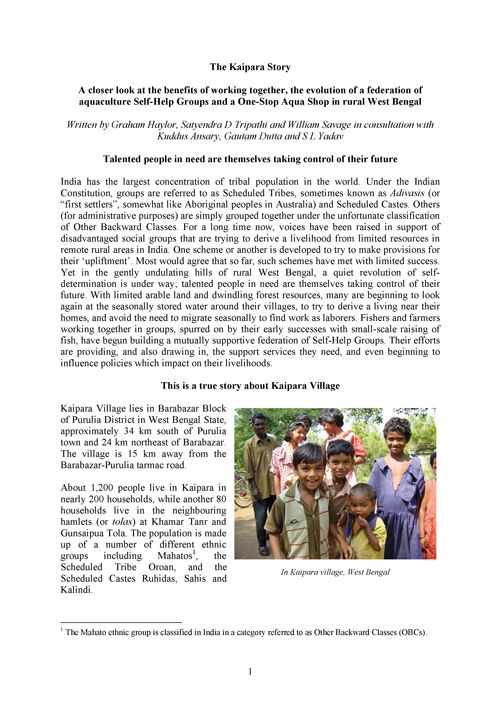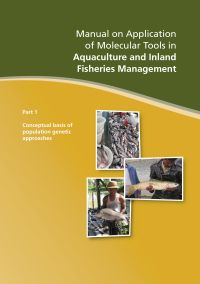The Kaipara story
1 December 2005 | Graham Haylor, Satyendra D. Tripathi and William Savage | 943 Downloads | .pdf | 382.95 KB | Gender, India, Livelihoods, gender and social issues
A closer look at the benefits of working together, the evolution of a federation of aquaculture self-help groups and a one-stop aqua shop in rural West Bengal.
India has the largest concentration of tribal population in the world. Under the Indian Constitution, groups referred to as Scheduled Tribes, sometimes known as Adivasis (or “first settlers”, somewhat like Aboriginal peoples in Australia) and Scheduled Castes. Others (for administrative purposes) are simply grouped together under the unfortunate classification of Other Backward Classes.
For a long time now, voices have been raised in support of disadvantaged social groups that are trying to derive a livelihood from limited resources in remote rural areas in India. One scheme or another is developed to try to make provisions for their "upliftment". Most would agree that so far, such schemes have met with limited success. Yet in the gently undulating hills of rural West Bengal, a quiet revolution of self-determination is under way; talented people in need are themselves taking control of their future. With limited arable land and dwindling forest resources, many are beginning to look again at the seasonally stored water around their villages, to try to derive a living near their homes, and avoid the need to migrate seasonally to find work as laborers.
Fishers and farmers working together in groups, spurred on by their early successes with small-scale raising of fish, have begun building a mutually supportive federation of Self-Help Groups. Their efforts are providing, and also drawing in, the support services they need, and even beginning to influence policies which impact on their livelihoods.
This publication is also available in Bengali, Hindi and Oriya.
Creative Commons Attribution.

